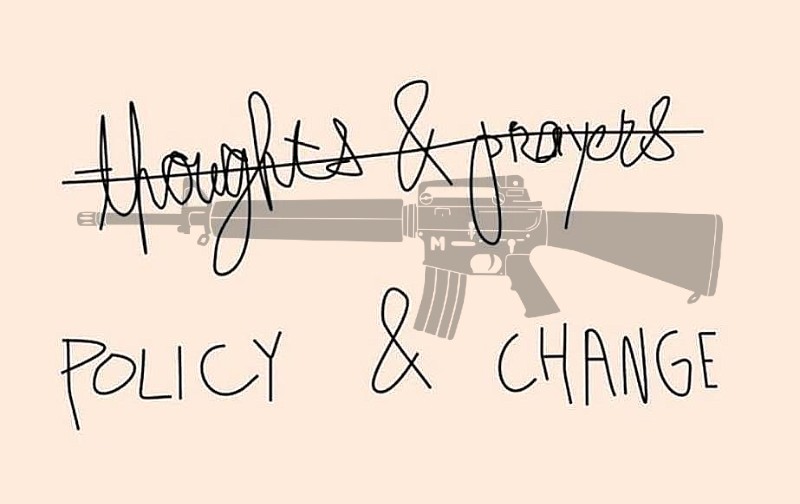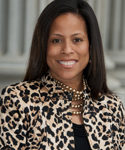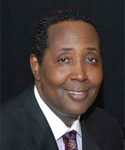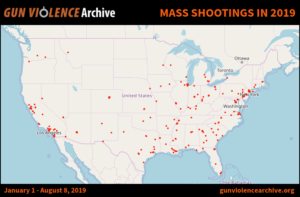
By Lindsay Street, Statehouse correspondent | With school starting in two weeks, Hilton Head Elementary first-grade teacher Laura Horton doesn’t have a lot of time to think about the next mass shooting.
Amid the half-unpacked boxes of classroom supplies, just days after the nation witnessed two deadly mass shootings in Dayton, Ohio, and El Paso, Texas, the Costa Rican-born mother of three said without state or national action, gun violence will likely continue.
“It’s scary. No matter where you are, you’re doing your daily chores for life, and then somebody who has a problem …” she said, trailing off. “Somehow here, I try not to think about it. It’s a harsh reality.”
Statehouse Report this week spoke to seven South Carolinians from a variety of backgrounds on the record for this story. Each said there should be some sort of stricter gun control or enforcement. Six out of the seven said the state and country should also focus on improving mental health services. Despite two being immigrants and three being minorities, none mentioned proposals to make hate crimes illegal.
So far in addition to warming Republican talks of expanded background checks, there is a federal, bipartisan bill that seeks to enable states to seize guns from people believed to be a danger to themselves or others.
South Carolina’s U.S. Sen. Lindsey Graham, a Republican, this week said he would introduce “red flag” legislation with Sen. Richard Blumenthal, D-Conn. The program would create a federal grant program to encourage states to adopt “red flag” laws. The proposal reportedly has earned support from President Donald Trump, a Republican.
There is no such legislation, proposed or enacted, in South Carolina. However, law enforcement officials seized the guns from the home of a teenager accused of making racist comments and violent threats at a Catholic private school in Columbia. It is unclear whether the seizure is a part of evidence or a proactive measure.
At the Statehouse
Democratic lawmakers in South Carolina this week called on the General Assembly’s Republican leaders to convene a special session to address gun violence. But it appears any work will have to wait until 2020. GOP leaders did not return requests for comment on whether they would consider a special session. The State newspaper called it “unlikely.”
![]() There are about a dozen of firearms-related bills currently being mulled at the Statehouse, with half looking to curb gun violence and the other half looking to expand gun ownership rights.
There are about a dozen of firearms-related bills currently being mulled at the Statehouse, with half looking to curb gun violence and the other half looking to expand gun ownership rights.
When state lawmakers return in January, senators will consider final reading of a bill that would make it legal to carry a concealed handgun in the state without a permit (S. 139). The bill has already received second reading in the Senate. If passed, it will need to get approval in the House.
Other bills calling for expansion of gun rights include:
- Allowing clerks of court to carry concealed weapons on duty (H. 3073);
- Allowing concealed weapon permit holders to carry on church property, and make it so the church is not held liable in the event of an incident (H. 3774); and,
- Reciprocating all out-of-state concealed weapons permits (H. 4314).
Bills calling for gun control so far in 2019 session include:
- A “school safety fund” (H. 3109) that would charge a 7 percent fee on the sale of handguns to provide for school resource officers;
- Lizzy’s aw (H. 3683), which is a proposal that would mandate the reported loss or theft of a firearm;
- Several bills (S. 154, H. 3248) that would require a 10-day mandatory reporting of criminal cases to state law enforcement (also known as closing the “Charleston loophole”);
- A ban on assault weapons and high-capacity magazines (H. 3206); and,
- A mandatory national background check for any sale, exchange or transfer of a firearm (H. 3059).
None of those bills, either limiting or expanding gun ownership, have made it out of committee.
According to gun-control advocacy group Giffords Law Center, South Carolina received an F for its gun policies. The group ranked the state 30th out of 40 for gun law strength and 12th for top gun deaths in the nation. Texas also received an F. Ohio received a D.
Another gun-control advocacy group has listed 39 mass shootings incidents — where four or more people, not including the shooter, are injured or killed — in South Carolina since 2014.
Richland County Sheriff Leon Lott said Thursday that South Carolina needs hate crime legislation, especially in light of a recent case against the former Cardinal Newman high school student. Two House bills that would add such a statute have languished in committee since January.


S.C. Rep. Mia McLeod, D-Richland, and S.C. Sen. Darrell Jackson, D-Richland, said this week they would push for hate crime legislation in 2020. The proposed bill by McLeod would also mandate that teachers and school administrators would have to report all threats to law enforcement.
“The time to act is now, not after the next tragedy,” Jackson said in a press release. “When I introduced the first hate crime legislation in South Carolina over 20 years ago, I knew it would be a difficult conversation to have. Now, as targeted terror rattles our country yet again, I’m urging my colleagues to join me in passing a common-sense bill.”
‘Do something’
In a 2018 reader survey about 2019 legislative priorities, more than a quarter of respondents listed gun control as a top priority. Closing the so-called Charleston loophole — which would delay gun purchases for some buyers and has been linked to the 2015, race-motivated Charleston church massacre — was among the top actions sought in 2019 by readers.
“Strengthening our gun violence laws to prevent domestic violence murders and mass shootings,” a respondent wrote.
 “Do something” has become a rallying cry after a deadly weekend that claimed 31 lives — including one of the alleged gunmen — and injured nearly 50 in two separate mass shootings. The chant has been launched at protest events — usually by liberals protesting federally elected Republicans — but its sentiment appears to resonate with some in the state.
“Do something” has become a rallying cry after a deadly weekend that claimed 31 lives — including one of the alleged gunmen — and injured nearly 50 in two separate mass shootings. The chant has been launched at protest events — usually by liberals protesting federally elected Republicans — but its sentiment appears to resonate with some in the state.
“We’ve got to stop finger-pointing and the political whatever, and come together and start talking,” B.J. Love of Hilton Head Island said. “Let’s quit fighting for political means and just do it.”
On Wednesday, Love was sitting at a waterfront cafe with her husband, Anderson Love.
“I feel less safe,” B.J. Love said, adding that she thinks about avoiding crowds and worries about the safety of her grandson at public school. “I look around and it’s on my mind: Who is going to spring up on this sidewalks with a gun?”
She wants to take her grandchildren to Disney World later this year, but that’s a big, public space. She said she’s worried.
“You have a fear for your children,” Anderson Love said. The couple is black, but they don’t feel it’s a race issue with white people targeting minorities, as may have been the case in the El Paso shooting and with the 2015 Charleston church shooting.
The couple said they believe removal of God from public schools and the infiltration of “the characters of Satan” have lead to more increased shootings. Both are U.S. Army veterans.
Anderson Love said politicians need to “choose the path of listening to God” and bring prayer back to public spaces like schools.
“You took God out of the equation. What happens? We have massacres,” he said.
Don Weiskerger of Mullins, who owns Liberty Guns, also cited a “break-down in society.” He said “removal” of God, and a lack of respect for others has led to the increase in violence in the nation.
Weiskerger said curbing gun violence will come from enforcing current laws and increasing funding and programs for the mentally ill.
“It’s time we take mental health seriously,” he said, adding that many of the mass shooters appear “crazy.”
B.J. Love said she wants a mixture of funding mental health and limiting who can have access to what weapons, adding civilians don’t need access to weapons of war. Latina teacher Horton agreed.
“Those guns should not be allowed to anybody,” she said.
Wayne Markham of Ridgeville said there is a need for “stricter gun laws.”
“But even if we had stricter gun laws, people are still going to be able to get a hold of guns but if you got more good people that have guns that know how to use those guns and they’re carrying them around then I think you’re going to have less problems with a bad guy,” he said, but he added that he was surprised the El Paso shooter was able to gun down so many in a state where he assumed “everyone has guns.”
He said he hadn’t thought about what types of gun control laws would work.
Restaurant owner and French immigrant Philip Feret of Hilton Head Island acknowledges that gun ownership is a part of the Constitution.
“But it was written a long time ago,” he said. “You have to be trained (to handle deadly weapons).”
Feret said he would like to see a weapons registry to help crack down on illegal transfers of weapons.
A rising high school senior who spoke to Statehouse Report said mass shootings are “not surprising,” but he added that maybe one day something would curb the violence. He saw mass shootings as part of the country’s gun rights, calling it a “grim reality” that he must face with his peers.
- Have a comment? Send to: feedback@statehousereport.com
















 We Can Do Better, South Carolina!
We Can Do Better, South Carolina!
an f on gun safety does that mean that we love guns more than people what would Jesus say
Pingback: Charleston Currents – 11/25, full issue: On #GivingTuesday, Thanksgiving, more